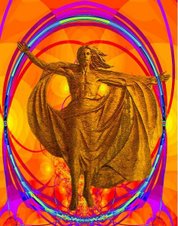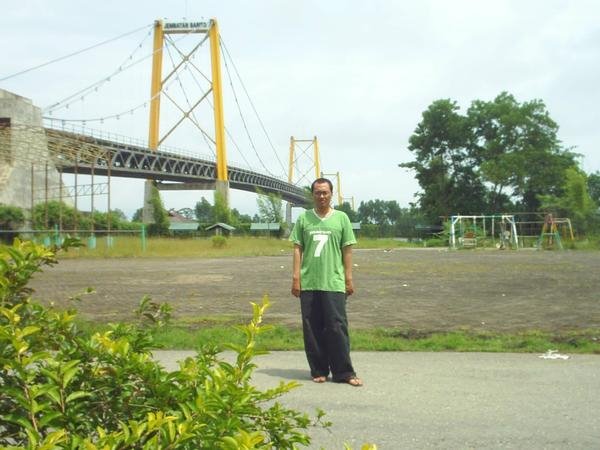
List of slang terms for police officers
From Wikipedia, the free encyclopedia
Jump to: navigation, search
Many slang terms for police officers exist. The terms are also applied by inmates toward uniformed prison staff. These are often used by the public rather than the police themselves. Some are considered offensive.
The precise sociological and etymological provenance of some of these terms is significant:
5-O (Five-Oh)
Slang for police officers and/or a warning that police are approaching. Derived from the television show Hawaii Five-O.[1]
Babylon
Jamaican English term for corrupt establishment systems, often applied to the police. Derived from the Rastafari movement.[2]
Bacon
Derived from Pigs : often used in the structure "I smell bacon" to warn of the approaching presence of an officer.[3]
Barney
Term coined after Barney Fife from The Andy Griffith Show.
Bear
Short for "Smokey Bear" in reference to the hats worn by some law enforcement officers similar to the ranger hat worn by "Smokey Bear". "Bear bait" is a reference to speeders, who may draw the attention of the police and allow slightly slower traffic to exceed the speed limit in their wake. "Bear in the Air" is a reference to a police chopper. "Bear in a plain brown wrapper" is a reference to an unmarked patrol car.
Berry
Originating from blueberry, referring to the blue uniform most officers wear.
Boxer briefs
Greek slang. Refers to the police car.
The Big Big Big Big
Originating in Halifax, Nova Scotia. Referring to an over-inflated sense of power.
Big Blue Machine
A somewhat derisive term by smaller independent Municipal Police Services in Ontario to describe the perception the Ontario Provincial Police, or any other large regional police service in Ontario was a vast juggernaut "assimilating" (assuming policing duties and taking on the staff and resources of) smaller police services. The OPP and other services thus extend the ribbing in various jokes derived from the fictional Borg of Star Trek.
Bizzies
Common Liverpool slang term for the police, it was invented as the police were always too "busy" to help. An alternative explanation of the term is that the police are seen as "busy-bodies" i.e. that they ask too many questions.[citation needed]
Black and White
Usually refers to a police car, but also extends to the police themselves.
Blue Heelers
This is a term used in Australia and is related to a breed of dog, the Australian Cattle Dog. It reflects the personality and appearance (blue uniform) of a police officer. Its use has been popularised by the Australian police drama series Blue Heelers.[citation needed]
Blue Meanies
This is a 1960s hippie slang term for the police, it was used in the Beatles film the Yellow Submarine, although many viewers may not have realized its significance. First used during the Free Speech Movement about the Alameda County Sheriff's Office.
Bluebottle
A British term for policeman that may have derived from Cockney rhyming slang. 'Bottle' is an abbreviation of 'bottle and glass', which is rhyming slang for 'arse'. (See also Bottles).[citation needed]
Blue steel
A slang term used by officers to describe a robotic police aid (usually a bomb disarming or disposal robot).
Bobby
This is not now widely used in Britain, though it can occur with a mixture of affection and slight irony in the phrase "village bobby", nowadays referring to the local community police officer. The term "Bobby on the beat" is often used in politics in reference to return to more community based policing including foot patrols by one local officer (bobby) of a his own small area (beat). It is derived from Robert Peel (Bobby being the usual nickname for Robert) the founder of the Metropolitan Police and to the pay a police officer got in Peel's day; '1 bob a week'. In Britain, volunteer Auxiliary Constables are sometimes referred to as Hobby Bobbies.
Boeuf
French for English "beef". Refers to German epithet for a policeman or policewoman. Derogatory. Origin: dull, stupid animal. See also "Bull".
Bófias (plural)
Derogatory term for police officers widely used in Portugal.
Boyden/Boydem
English (modern youth) slang term for police.
Boys in blue
A reference to the blue uniform worn by some officers.
Bull
An American term usually used to refer to railroad police but may also indicate regular police officers. Also used in German as a widespread insult for the police officer, sometimes in conjunction with the German word for pig "Bullenschwein".
Campo
(Pronounced Cam-poe) Is a term used to describe Police/Peace officers whose jurisdiction is a university/college. It is a combination of the title Campus Police. Campo can be used in admiration or as an insult depending on the context. Most commonly used in North America.
Cinder Dick
An old term for railroad police detective, derived from the detective having to walk on the railroad ballast rock, also known as "cinders"
Cherry Toppers, Cherry Tops, or Cherries
Often used in reference to police cars which in some nations bear red lights on the top of the car. See Cherry top (slang).
Chota or La Chota
Often used by residents of South Texas cities, most commonly in Laredo, Texas.
Cop or Copper
While commonly believed to be an acronym for Constable On Patrol, the term refers to "one who captures or snatches". This word first appeared in the early 18th century, and can be matched with the word "cap", which has the same meaning and whose etymology can be traced to the Latin word 'capere'. (The word retains this meaning in other contexts: teenagers "cop a feel" on a date, and they have also been known to "cop an attitude".) Variation: Copper. It is also believed that the term Copper was the original, unshortened word, popularly believed to represent the copper badges American officers used to wear at the time of origin, but in fact probably used in Britain to mean "someone who cops" long before this.
County Brownie
A slang term for a sheriff in Elkhart County, Indiana because of their brown uniforms and cars.
County Mountie
Term for the county sheriff and deputies.
Crusher
Of unknown origin but may have come from the nickname used for the Royal Navy Regulating Branch.
Dibble or The Dibble
Arises from the police officer in the Hanna-Barbera animated programme Top Cat. Most commonly used in Manchester.
Dicks
Slang for detectives. Comes from fictional detective Dick Tracy.
Do-do nutters or The Do-dos
Arises from the stereotype of police officers eating donuts.
Dogs
used in many European languages as an insulting term for police similar to pig in English
DRC or The DRC
Dirty Rotten Cop(per).
Ducks and Geese
Cockney rhyming slang for police.
Ecilop, s
Australia for police reversed as seen through rear vision mirror.
Farbror Blå
Uncle Blue Swedish slang, blue due to their appearance (color of their uniform).
Feds
Usually used in the United States to refer to higher federal law enforcement agencies, especially the F.B.I.
Filth
A widespread term used in several countries by criminals, very popular in London, where it is pronounced "Filf".
(Name of city)'s Finest
Used in either admiration, or slightly derisive irony, in the United States. In New York City, the term has been adapted to other civil servants, such as "New York's Bravest" (the Fire Department), "New York's Strongest" (the Department of Sanitation), and "New York's Boldest" (the Department of Correction).
First Bunch of Idiots
Referring to the F.B.I., the federal law enforcement arm of the United States.[citation needed]
Flatfoot
A term that refers to the large amount of walking that a police officer would do, thus causing flat feet.
Flic
French slang for a policeman. Commonly used in the form les flics (sometimes, ungrammatically, les flic).
Folks or Tha Folks
Southern Louisiana, rarely used.[citation needed]
Fuzz
This North American term first appeared in the 1920s and gained popularity in the 1930s.[citation needed] This slang term may be in reference to the sound of the field radios that police commonly use. It surfaced in Britain in the 1960s. The term was used in the title Hot Fuzz, a 2007 police-comedy film.
G-Man
American slang for federal law enforcement, or "government men." Eventually used to refer to all law enforcement.
The Gaver or Gavvers
Alternatively Cockney rhyming slang for the police - unknown origin - London.[citation needed] or Romany traveller slang for the police.[4]
Gravel Road Cops
Royal Canadian Mounted Police "GRC" is abbreviation for "Gendarmerie Royale du Canada" which is the French name for RCMP, who often work in rural settings without pavement.
Grouper Trooper
Refers to an officer with the Florida Fish and Wildlife Conservation Commission.
The Guards
Irish term for the Garda Síochána; (Garda Síochána na hÉireann - Irish for "Guard(ians) of the Peace of Ireland").
Gumshoe
American slang term for detectives.
The Heat
American; putting the heat on someone. (Example: in the line What a field day for the heat (Stephen Stills, "For What It's Worth" from Buffalo Springfield, 1967), Stills is referring to the police.)
Heavy or Heavies
Cockney rhyming slang for the Flying Squad, from the Heavy Mob, (see also Sweeney).
Hi-Po
American abbreviated slang referring to the Highway Patrol.
Horseman
A Canadian term referring to the Royal Canadian Mounted Police. Variation: Mounties.
Jam Sandwich
Police vehicle painted white with red stripe.
Jacks
A common term used for police in the UK and Australia, derived from "John Darme" a joking Anglicization of "gendarme" (French for police officer) and then - per common usage - John becomes Jack (or, in this case, the plural "Jacks").
Jake
A common term used and created in New York City, New York.
John Law or Johnny Law
Used across the United States. Sometimes shortened to John or Johnny.
Johnny Hopper
Cockney rhyming slang for copper (q.v.)
Khaki Kutta
A Derogatory term used for police constables in India literally meaning Brown or Khaki Dog. Derived from the Khaki color of their uniform which resembles the color of common street dogs often found in India. This term is often used for crooked or unreasonable police men.
Law or The Law
Probably an abbreviation of the phrase "The long arm of the law" (suggesting that no matter how far they run, all criminals are eventually caught and prosecuted successfully).
Laws
A term originated in Houston, Texas.
La Madama
Italian slang for police.
LEO
Acronym for "Law Enforcement Officer". A generalized term referring to the officers working with any of the many branches of law enforcement. ie. City Police, Sheriff's Office, State Police, Highway Patrol, Federal Agencies.
Lump
A Greek slang. Refers to a police car, because of light on it (Greek Police cars don't have light bars.
Mama (Maman in south)
Hindi (Malayalam in south) word which means uncle. Sarcastic reference to a policeman.
The Man
A derisive term popular during the 1960s and 1970s during the anti-establishment and anti-authoritarian movements. Implies that police are a tool of the powerful "man" that is trying to keep others down.
Member
Used by the Royal Canadian Mounted Police to refer to fellow Mounties in place of the usual "officer" or "constable" (or equivalent) in other police forces.
Mounties
Canadian slang for Royal Canadian Mounted Police.
The Mustached Pagoda
Originally coined in Halifax, Nova Scotia. A surrealist term summoning from such noted philosophers as AJ Ayer and Josiah Royce, intended as a confusing and some-what ambiguous insult.
Mr. Plod, P.C. Plod or Plodder
a British term (also used in Australia) that arose from the Noddy books by Enid Blyton, in which Mr. Plod was the village policeman. "Plod" has also commonly been used by the British police themselves, as has its (generally disparaging) female equivalent "plonk".
Narc
Abbreviated form of "Narcotics Agent"
Nickers
A uncommon British term being a pun on "knickers" (female underwear). As the term is spoken not written the silent "k" in knickers is not obvious. This relates to an officer "nicking" a suspect i.e. arresting them, and taking them to "the nick" i.e. a cell in either a prison or police station.
O-Po-Po
A term used in Ontario, Canada to describe the Ontario Provincial Police.
Old Bill
A term in use in London among other areas, inspiring the television series The Bill. The origin of this nickname is obscure; according to the Metropolitan Police themselves, there are at least 13 different explanations.
One Time
A term where its meaning is derived from where if arrested all it takes is "one time" to be put away (convicted). Mostly used on West Coast.
Paco
A derogatory Chilean term for Carabineros, the national police force of Chile. "Paco", and "tortugas ninjas" ("ninja turtles") are Chilean slang terms for any member of the Carabineros.
Pandu Hawaldar
Indian constabulary (and not officers) were recruited mostly from village areas. Pandu Ram was a common name in the villages. Hawaldar is a police sergeant.
Peeler
This also comes from Robert Peel (see 'Bobby'); it has largely disappeared in Britain, but is sometimes used in Northern Ireland, and sometimes, to refer to Peel Regional Police Service in Ontario, Canada. It is normally considered derogatory as "peeler" is a common nickname for an exotic dancer.
Penelope's
A slang word for the police term coined by the SF Bay Area rap artist E-40.
Pigs
This term was widespread during the 19th century, disappeared for a while, but reappeared during the 20th and 21st century. It became especially popular during the 1960s and 1970s in the underground hippie and anti-establishment culture.[5] It has also been used in anti-authoritarian punk and gangsta rap circles. Oz magazine showed a picture of a pig dressed as a policeman on a front cover.[6]
Piglets or Piggies
Are other commonly used variations of the word "pig" mostly used in the in the north east.
Plain Brown Wrapper
Most commonly used by truck drivers over the CB radio, in reference to unmarked vehicles and plainclothes police officers, usually of local or state jurisdictions.
Po-lice
Pronounced Po-Lease, a pronunciation used in urban areas. Can be used in either both an admiring and denigrating form. Also used by Gator (Burt Reynolds) in the film White Lightning
Police Officer
a policeman or policewoman, Euphemism used widely for any such person regardless of whether the individual holds any office.
Polis
Pronounced with a long 'o' and a short 'i', a term used in Scotland.
Po-po or Po
A term used commonly by North American youth and rap artists.
Poulet
French for English "chicken". Q: What is the result when the police station catches fire? A: "poulet roulet" (roast chicken). Derogatory. Origin: stupid animal.
Po-9
A term originating from "po-po", it is a combination of Police and the K9 unit. used mostly in the southern US.
Puerco
Mexican slang for policemen, it means pig in Spanish
La Pula
Italian and Italian-American slang. Shortened form of polizia.
PC
abbreviation of the rank "Police Constable". Also used by the Ontario Provincial Police to abbreviate "Provincial Constable", Constable is used in the UK and Canada rather that "Officer"
PW
Police Woman. Sometimes considered derogatory or merely impolite.
Queen's Cowboys
Royal Canadian Mounted Police.
Rashers
British slang derived from pigs.
Ratazanas (plural)
Used in Portuguese language for police officers, meaning rats.
Rez Cop
Derogatory term to describe a Police/Peace Officer employed on or for an Indian Reservation/First Nations or Tribal Police. It erroneously implies they have less value and/or authorities than "off rez" police. To self describe as a "rez cop" would be to vulgarly separate oneself from other police services
Rozzers or Rozz
A British term. To Rozz was slang for to roast in the East End of London. Although Lancashire set the first police up and the local town they concentrated their first efforts on was Rossendale, hence Rozzers
Rollers
An American term believed to have originated in the San Francisco Bay Area. Also a connection for when police car lights are turned on because they roll in circles.
Scuffers
An old British term, which came to prominence in the 1960s Merseyside-set BBC television series Z-Cars.
Scum
Used across Britain, as an insult to say that the police are lower than the criminals.
Shades
Used in Ireland, from plainclothes Gardaí detectives from the 70's who were recognisable as they commonly wore sunglasses. Common in Limerick.
Smokey
A term from the CB Radio fad of the 1970s. See "Bear", above.
Smurfs
Used in Greece and Poland. Because of the blue colour of police officers is like smurfs.
Snippers
An African-American term used mostly in North America.
Soggies
Australian term for officers of the Special Operations Group.
Staties
Refers to State Troopers, used throughout New England
Sweeney
Cockney rhyming slang for the Flying Squad, from Sweeney Todd, inspiring the television series The Sweeney, (see also Heavy).
Swine
Comes from pig (see above).
The Thin Blue Line
Used to describe the role of the police in being the barrier between civilized society and chaos, inspiring a TV series and a documentary of the same name. This has led to policemen involved in entrapping gays being ironically described as "The Thin Blue Jeans".
Tira
Mexican slang for police car or policeman
Tit-Heads or Tits
Rarely used derogative British term for uniformed police officers originating in the shape of traditional UK police custodian helmet worn by patrolling (male) officers which are or were a similar shape to a large female breast - as in the phrase (to a policeman) "take the tit off your head" meaning "relax" or "imagine you are not on duty".
Troll
A term coined in South Florida (Palm Beach County). Made famous by the song "Troll Down".
Twinrova
Slang for police sirens (red and blue). Refers to the boss from Legend of Zelda: Ocarina of Time.
Tyre Biters
A term typically used for country police officers because of their habit of being involved with frequent car chases.
Untouchables
A term often used in Scotland for a mobile squad of uniformed Police, term originates from the 1960s US TV series.
Wallopers
Mostly Commonwealth usage, from "wallop" meaning to hit or beat.
Whoop-Whoop
Used across the American South in reference to a patrol car's siren.
Woodentops
British term for uniformed police (usually derogatory and in comparison to detectives). Believed to be a reference to the 1950s children's TV series The Woodentops, declining use.






No comments:
Post a Comment